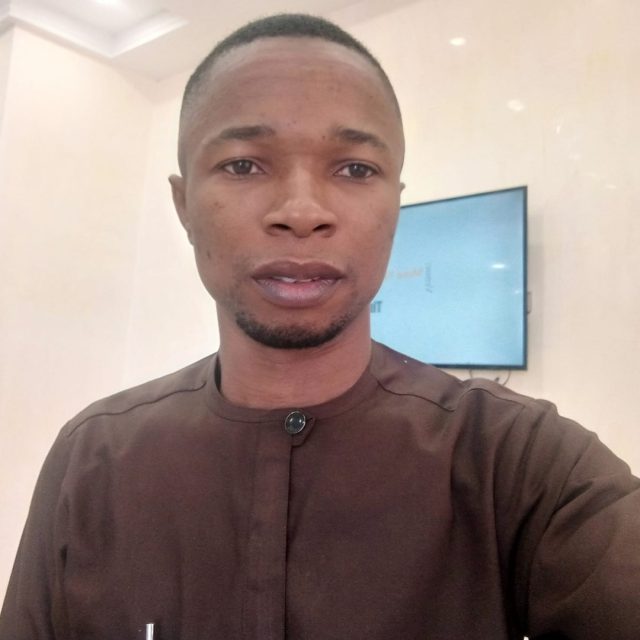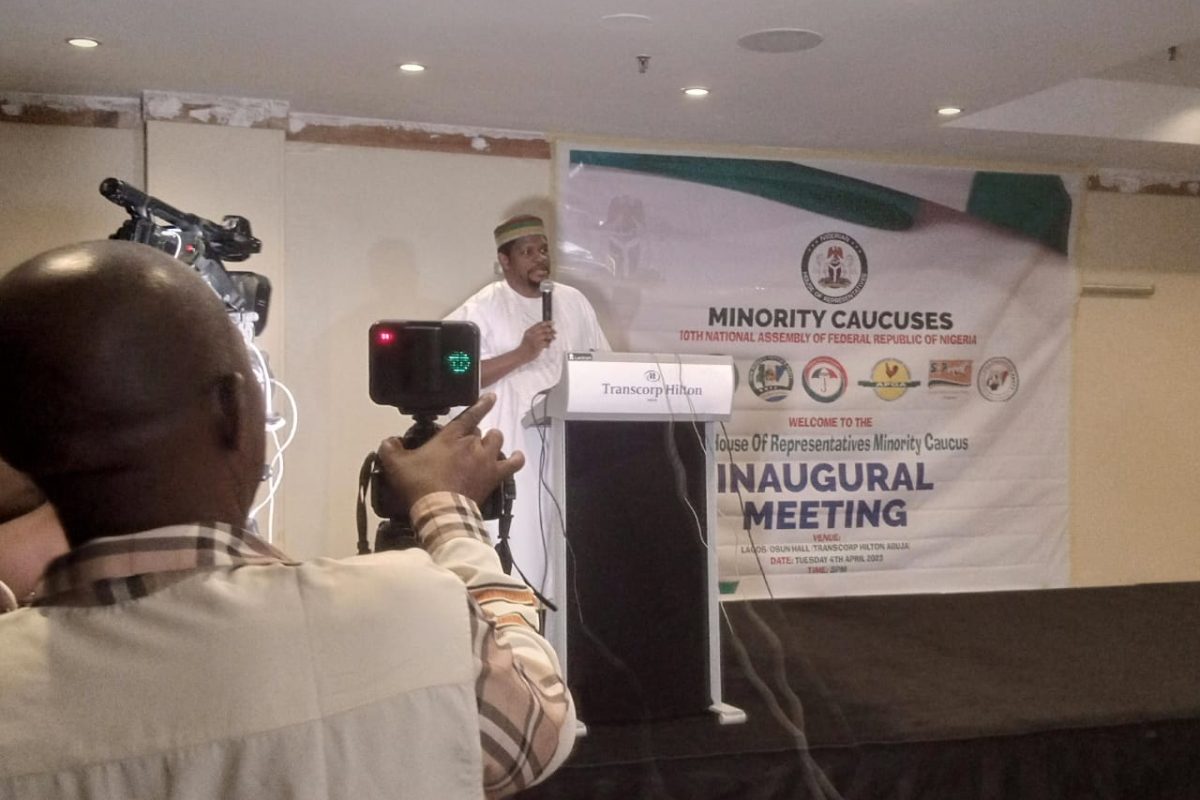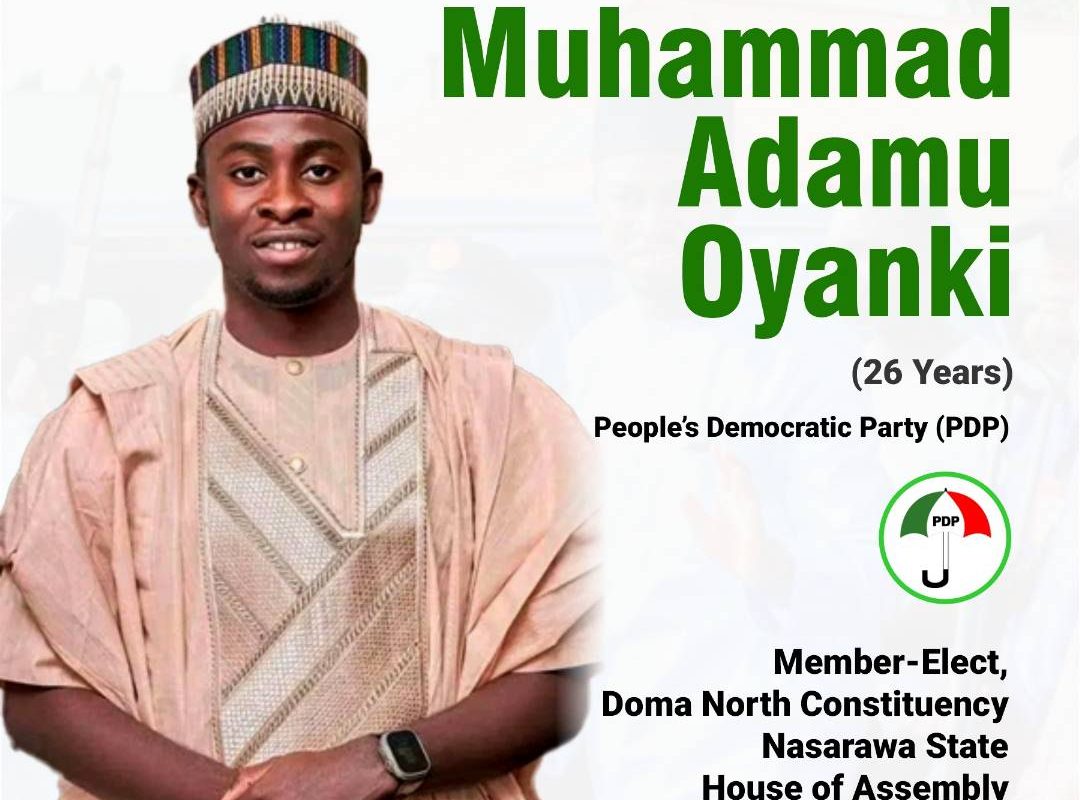Youth Advocate, Michael Olaogun bares his thought on the ‘power of the youth’ in this electoral cycle and concerns about the future of Nigeria’s youth in politics post-2023

As Nigerians anticipate the 2023 elections, there is a cause for worry over what becomes the fate of the youth in national affairs post-2023 elections.
This worry is not unconnected with emerging data from Nigeria’s electoral umpire on the youth demography since the emergence of flagbearers for the different political parties and elective positions, particularly the National Assembly seats.
Amidst different contentious issues (including youth marginalisation), there has been a smooth transition of power from one administration to the other since the advent of the Fourth Republic, but the youth have remained the backbone of sustaining our nascent democracy.
READ ALSO: Fact File: Performance Appraisal of ‘Under 40’ Parliamentarians | National Assembly Scorecard
One of the unique attributes of the 2023 Elections is the surge in registered voters totalling 93.5 million, of which 37,060,399 (representing 39.65 per cent of voters) are between the ages of 18 and 34. There is also the new Electoral Act which will be tested with different sections introducing new approaches to the conduct of the elections. Another factor is the country’s current state in terms of economy, insecurity, and other factors adversely affecting the youth. These are key indicators that will drive the 2023 general elections.
Several issues are confronting Nigeria and have remained contentious for decades. Interestingly, they have also remained the focus of successive governments since the advent of the Fourth Republic, and with no hope of a possible solution any time soon.
Spotlighting the data from the Independent National Electoral Commission (INEC) on candidates for federal legislative seats across the different political parties, there appears to be a 6% decline in youth candidacy at general elections from 34% in 2019 to 28%, according to the recent list released by the Commission. Out of 3,115 candidates vying for the 360 House of Representatives seats, only 647 (representing 20%) fall within the youth bracket, while for the Senatorial seats, only 41 out of 1,101 candidates (representing 3.7%) are young candidates.
Considering the data above, one may not be wrong to posit that the youth may have less than 1% representation in the next Senate and House of Representatives of the Federal Republic of Nigeria in the Tenth National Assembly. It also lends credence to the argument that the #NotTooYoungToRun Bill signed into law by President Buhari in 2018 has been sabotaged, and the current state of polity has not given room for youth inclusion in politics, particularly for elective positions.
READ ALSO: Fact File: Breakdown of Permanent Voters Card (PVC) Data
The spotlight on the legislative arm of government as it relates to the youth is seen from the prism that it remains the only arm of government where relevant legislation that can positively affect the socio-economic well-being of the youth can be formulated.
Sadly, there is an illusion among the older generation that youths are not interested or involved in partisan politics and political activities. This assumption is costly and has been proven otherwise based on the youth turnout in the last voter registration exercise. Thus, the deliberate efforts by the political class to keep political participation very expensive remains a factor militating against active youth participation in Nigeria.
Notwithstanding, my wish is that we will all rise up for our voices to be counted on February 25, March 11, and indeed, at every other time it matters most.
Micheal Olaogun is Legislative Accountability Strategist, Youth Inclusion Advocate and Policy and Public Affairs Analyst. He wrote from Abuja.




One comment
Aladeokomo Babatunde Sunday
February 16, 2023 at 9:59 am
This content is rich. I salute the writer and I appreciate how he stressed out areas where youths may be found wanting in this elections. Nevertheless, a vote cast wisely and rightly for competent candidate(s) can be the beginning of robust policies, appointments and legislations that will change the narrative going forward. For me the only solution now is that the youth must vote for competence in this election if they don’t want this marginalization to continue.